Words MAXMILIAN WECHSLER
Dean of Bangkok’s Diplomatic Corps has some interesting advice as he looks back on six years’ representing Denmark in Thailand
| DENMARK’S popular motorcycle-riding and guitar-playing ambassador Mikael Hemnity Winther completed his posting to Thailand last month and will take up a new assignment in Bangladesh. The BigChilli had the privilege of chatting with this widely respected diplomat and former dean of the Bangkok diplomatic corps at his embassy before he left. Below are excerpts from that conversation. “I began my term as Danish ambassador to Thailand on January 1, 2011 and quickly realized that the job automatically brings enormous respect from government officials and others in positions of authority. They are very willing to advise and brief you. But in order for me to be sure that I understood the country, I knew I had to do something different. I couldn’t only move in Hi-So circles. Not that I don’t enjoy that sort of thing, but to perform my duties effectively I needed to know what was really going on in the country. “A part of this was going out on the motorcycle wearing a black T-shirt where nobody knew who I was. I go out on my own to be anonymous because then ordinary people will talk to you. Obviously, I am not sitting there asking ‘what do you think about this and that’; I am sensing the people’s mood,” explained Mr Winther. |
“Another big thing has been music. When I go out to play music I come in contact with Thai musicians and Thai audiences. These people come to entertainment spots to have a good time and they don’t care who I am. When I play guitar they like it; they are not concerned about me being an ambassador or something else. It’s the same when I go out on the motorbike. Why should people care who I am? Doing these types of things I get to be a little more in touch with other parts of the society, so I understand more when I make reports about what is going on in the country.
“Then I meet with NGOs and I meet with university students. I try to get as many speaking assignments at Thai universities as I can, so I can get feedback from the students not just from the teachers. I always encourage the students to speak. They are shy, of course, but I really try to get the opinions of young people. Otherwise you don’t get the full picture of the country.
“Many times the official views and opinions differ from those of ordinary people. This is true also in my own country and for myself. When I talk to my colleagues inside diplomatic circles or outside it, I have the privilege to be able to express my personal opinion on all matters as long as it is clear that I don’t talk as a representative of my country and my government. Naturally, in my work I promote the official line from Denmark, but as a Danish diplomat I can certainly have my own opinion even about my own government.
“As the Danish ambassador I have the right to talk freely in private and even completely disagree with my government in private. But, on the other hand, I work for the Danish government and I have a clear responsibility to promote its policies.
Rewards and challenges
To serve in Thailand for almost six years has been incredibly rewarding. It really has been the best experience of my life. The reason – and I am not just sweet-talking here – is that Thailand is a wonderful country with wonderful people. However, it can’t be denied that there are a lot of challenges facing the country now. Overall I am impressed with the optimism and resilience of the Thai people and I feel sure they will overcome the challenges and make it through this difficult period.
“The most challenging time for me personally was the military coup in 2014. The country now doesn’t have a democratically elected government. The EU and the government of Denmark has pointed out that we would like to see the Thai people more involved in decision making processes involving the future of the country. We have also pointed out that human rights and freedom of the press in Thailand should be protected. So we have been very strongly supporting the way back to democracy and encouraging the government to keep to its ‘road map’ and as quickly as possible hold democratic elections. That’s something we have been busy monitoring at the Danish embassy.
“I always try to share the experiences of my country when I am talking to Thais, especially regarding the democratic processes, social issues and human rights in my own country. I also try to share the experiences of Thailand when talking to my countrymen.
“The decisions of the EU with regard to contacts with the Thai government do not prevent us from maintaining high-level political contacts. It gives us some limitations but we can still have a close dialogue. That is important to maintain good relations and work together.
“Another important task that I have is that my embassy must respond to the needs of the very large number of Danes in Thailand that are here most of the year. There are more than 100 Danish companies here, and we try to help as much as we can, in particular in dealing with government agencies, identifying partners and/or helping finding market opportunities.
“We also have around 170,000 Danish tourists coming here every year and some of them need assistance from the embassy. So we have a lot of very serious work to do to keep them happy, but most of these tasks – including providing good service – is what makes the job very interesting. Fortunately I have managed to find time to really enjoy this beautiful country and its great people,” Mr Winther said.
“Then I meet with NGOs and I meet with university students. I try to get as many speaking assignments at Thai universities as I can, so I can get feedback from the students not just from the teachers. I always encourage the students to speak. They are shy, of course, but I really try to get the opinions of young people. Otherwise you don’t get the full picture of the country.
“Many times the official views and opinions differ from those of ordinary people. This is true also in my own country and for myself. When I talk to my colleagues inside diplomatic circles or outside it, I have the privilege to be able to express my personal opinion on all matters as long as it is clear that I don’t talk as a representative of my country and my government. Naturally, in my work I promote the official line from Denmark, but as a Danish diplomat I can certainly have my own opinion even about my own government.
“As the Danish ambassador I have the right to talk freely in private and even completely disagree with my government in private. But, on the other hand, I work for the Danish government and I have a clear responsibility to promote its policies.
Rewards and challenges
To serve in Thailand for almost six years has been incredibly rewarding. It really has been the best experience of my life. The reason – and I am not just sweet-talking here – is that Thailand is a wonderful country with wonderful people. However, it can’t be denied that there are a lot of challenges facing the country now. Overall I am impressed with the optimism and resilience of the Thai people and I feel sure they will overcome the challenges and make it through this difficult period.
“The most challenging time for me personally was the military coup in 2014. The country now doesn’t have a democratically elected government. The EU and the government of Denmark has pointed out that we would like to see the Thai people more involved in decision making processes involving the future of the country. We have also pointed out that human rights and freedom of the press in Thailand should be protected. So we have been very strongly supporting the way back to democracy and encouraging the government to keep to its ‘road map’ and as quickly as possible hold democratic elections. That’s something we have been busy monitoring at the Danish embassy.
“I always try to share the experiences of my country when I am talking to Thais, especially regarding the democratic processes, social issues and human rights in my own country. I also try to share the experiences of Thailand when talking to my countrymen.
“The decisions of the EU with regard to contacts with the Thai government do not prevent us from maintaining high-level political contacts. It gives us some limitations but we can still have a close dialogue. That is important to maintain good relations and work together.
“Another important task that I have is that my embassy must respond to the needs of the very large number of Danes in Thailand that are here most of the year. There are more than 100 Danish companies here, and we try to help as much as we can, in particular in dealing with government agencies, identifying partners and/or helping finding market opportunities.
“We also have around 170,000 Danish tourists coming here every year and some of them need assistance from the embassy. So we have a lot of very serious work to do to keep them happy, but most of these tasks – including providing good service – is what makes the job very interesting. Fortunately I have managed to find time to really enjoy this beautiful country and its great people,” Mr Winther said.
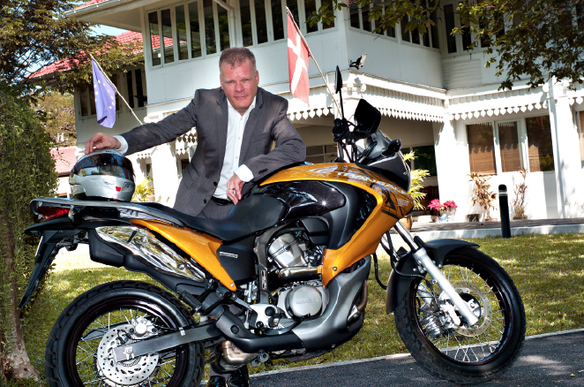
The Danish formula for happiness
Denmark has quite consistently been ranked as the happiest country in the world, meaning that if you ask Danish people to what extent they are happy with their lives, they consistently rank themselves higher than in other countries,” said the ambassador. “There are a lot of indices used to compare different countries, how they perform economically as a whole or per capita for example. But in the recent years there’s been an increasing focus on people’s welfare and how happy they are. We are talking about happiness in a broad sense, not happy like ‘ha, ha, ha,’ but do they feel they have a good life?
“The issue is, of course, how do you measure happiness? Happiness is subjective, so instead trying to measure it from the outside the measurement is made by personal interviews. You have various indicators on what constitutes happiness. It can be an immediate feeling or emotion you have, like if the girl you like calls you up and says she loves you. You feel very happy at that moment, but happiness can also be a more lasting state of well-being. It could be that your life is fulfilling, that you feel safe, that you think you have a good social network of friends, and you are not afraid of becoming ill because you know that you can get good hospital care. You have work that stimulates you and provides you with a good income.
“The funny thing is that we always hear that old cliché, ‘money doesn’t make you happy.’ But money does make you happy to a certain extent. When you have a certain amount of money you have some freedom and safety and you can choose to go and entertain yourself and you can travel. These things make you happy. But you just need that certain amount. Having much more money doesn’t make you much happier.
“These are some of the criteria that define happiness. People around the world are interested in knowing what it is that makes Danish people so happy. There’s an acceptance that this is a measurement of the quality of life in a country and not its relative prosperity. It is interesting to me that the present government of Thailand proclaimed that the reason they made the coup was to return happiness to the Thai people. Since Denmark ranks so high on the happiness scale I thought it was appropriate that I share my experiences with the Thai people on what it is that makes Danish people feel happy.
“So I contacted the Happiness Research Institute in Denmark. They are actually researching happiness. We at the embassy asked the director of the institute to come to Thailand, and also to Malaysia and Singapore. The institute did a presentation in these three countries on happiness, and we invited a group of interested Thai and foreign people. It was held at my residence. We didn’t invite a lot of people because we wanted to have an intimate atmosphere and we also wanted Thai participants to be able to speak freely. There are restrictions in Thailand now on speech and writing, but they were safe in my residence.
“A major criterion for happiness that we can easily see in Denmark is freedom to do what you like. This might be pursuing a sexual interest that you like. You could be gay, you could be transgender you could be whatever you want and have the same rights as people with other sexual preferences. In Denmark you can write anything you like in the newspapers, as long as you don’t slander other people. You can express your opinion, you can disagree with and criticize the government and you can talk about something that makes you angry in Denmark. You can trust that the authorities are not corrupt and trust that if you go to court you will get fair treatment whether or not you have money or power. That also constitutes happiness because it makes you feel safe. That creates trust in society and trust among the people makes individuals feel happy. You trust your neighbour.
“I want to show you two pictures (see above and next page). In the first one, some parents in Denmark have left their baby in a cradle outside a café while they have a coffee inside because they trust that nobody will come and kidnap their baby. The second photo was taken in the Danish countryside, where a farmer sells vegetables and flowers out on the street. It’s like a little street shop. The interesting thing is that no one is servicing the shop. The prices are written on the board and when people stop to buy something they take what they want and put money in the box. They take change if needed from the same box, and then they leave, and this actually works. People don’t steal the flowers or vegetables; the trust this vendor shows to people is not abused. This is a very common situation in Denmark outside the cities.
“A big part of happiness is trust among the people. You show trust to your neighbour and also to somebody you don’t know. This trust is mainly established by the government. The government doesn’t say, ‘You have to trust your neighbour’, but it sees to it that the police force and the legal system are trustworthy and not corrupt. Denmark is the least corrupt country in the world.
“There’s a strong correlation between trust and lack of corruption. You know that if your neighbour, who may be rich and powerful, does something wrong, then he will go to court and receive the same punishment as anybody else. There’s a basic trust there and the trust makes people feel happy. When you start to trust the system, the institutions, the judges and the police then you also start to trust your neighbours because you know they cannot do anything to harm you that will go unpunished.
“Happiness is a funny term related to many good feelings. Some are created by the individual. If you have good friends and people like you, you feel happy. But society and governments can also do a lot, and this is my point of view and message when I do these lectures or presentations. I try to share the experience of what the Danish government has been doing for many years to provide happiness for the people. It is not only about money; it is about creating an environment where people can feel happy.
“Most Thai government officials recognize that the country has challenges. They will say that Thailand has some problems now because the country is polarized. There are two sides of the political spectrum and they don’t trust each other. Thai people may not agree with all the things we do in Denmark and I don’t want them to do the same things. I am not trying to say Thailand should do as Denmark does. I am just trying to share experiences of what has worked for us, and part of this is government policy.
“I want to make a point about taxes. Many people tease me and say, ‘Oh, how can you be so happy in Denmark when you pay some of the highest taxes in the world?’ Do you know what the answer from the Happiness Research Institute is? We are happy because we pay high taxes, not in spite of it. The reason is that the tax money creates good things for the public and this makes people happy. Things like free healthcare, free education, support when you are unemployed or become disabled and support for housing if you need it. The taxes also go for highways, trains, internet connections, research and so on. The key is that because there is little or no corruption people trust that their tax money will be spent on the public good.
“I belong to an upper tax bracket. My income would be taxed at about 38-40 percent, but there are various deductions. In fact, Danes paid more taxes ten years ago. We have a very high VAT of 25 percent on all goods and service transactions. The government takes in a lot of money from VAT. We have high income taxes but we also have high incomes. Everyone would like to pay a lower tax but we pay without argument because we can see that society and the people are benefitting. The tax money is an investment.
“We look at education in particular not as a benefit only but also as an investment in the people. More educated people produce a better society. Everyone is educated in Denmark and even the street sweeper can use a computer.”
Denmark has quite consistently been ranked as the happiest country in the world, meaning that if you ask Danish people to what extent they are happy with their lives, they consistently rank themselves higher than in other countries,” said the ambassador. “There are a lot of indices used to compare different countries, how they perform economically as a whole or per capita for example. But in the recent years there’s been an increasing focus on people’s welfare and how happy they are. We are talking about happiness in a broad sense, not happy like ‘ha, ha, ha,’ but do they feel they have a good life?
“The issue is, of course, how do you measure happiness? Happiness is subjective, so instead trying to measure it from the outside the measurement is made by personal interviews. You have various indicators on what constitutes happiness. It can be an immediate feeling or emotion you have, like if the girl you like calls you up and says she loves you. You feel very happy at that moment, but happiness can also be a more lasting state of well-being. It could be that your life is fulfilling, that you feel safe, that you think you have a good social network of friends, and you are not afraid of becoming ill because you know that you can get good hospital care. You have work that stimulates you and provides you with a good income.
“The funny thing is that we always hear that old cliché, ‘money doesn’t make you happy.’ But money does make you happy to a certain extent. When you have a certain amount of money you have some freedom and safety and you can choose to go and entertain yourself and you can travel. These things make you happy. But you just need that certain amount. Having much more money doesn’t make you much happier.
“These are some of the criteria that define happiness. People around the world are interested in knowing what it is that makes Danish people so happy. There’s an acceptance that this is a measurement of the quality of life in a country and not its relative prosperity. It is interesting to me that the present government of Thailand proclaimed that the reason they made the coup was to return happiness to the Thai people. Since Denmark ranks so high on the happiness scale I thought it was appropriate that I share my experiences with the Thai people on what it is that makes Danish people feel happy.
“So I contacted the Happiness Research Institute in Denmark. They are actually researching happiness. We at the embassy asked the director of the institute to come to Thailand, and also to Malaysia and Singapore. The institute did a presentation in these three countries on happiness, and we invited a group of interested Thai and foreign people. It was held at my residence. We didn’t invite a lot of people because we wanted to have an intimate atmosphere and we also wanted Thai participants to be able to speak freely. There are restrictions in Thailand now on speech and writing, but they were safe in my residence.
“A major criterion for happiness that we can easily see in Denmark is freedom to do what you like. This might be pursuing a sexual interest that you like. You could be gay, you could be transgender you could be whatever you want and have the same rights as people with other sexual preferences. In Denmark you can write anything you like in the newspapers, as long as you don’t slander other people. You can express your opinion, you can disagree with and criticize the government and you can talk about something that makes you angry in Denmark. You can trust that the authorities are not corrupt and trust that if you go to court you will get fair treatment whether or not you have money or power. That also constitutes happiness because it makes you feel safe. That creates trust in society and trust among the people makes individuals feel happy. You trust your neighbour.
“I want to show you two pictures (see above and next page). In the first one, some parents in Denmark have left their baby in a cradle outside a café while they have a coffee inside because they trust that nobody will come and kidnap their baby. The second photo was taken in the Danish countryside, where a farmer sells vegetables and flowers out on the street. It’s like a little street shop. The interesting thing is that no one is servicing the shop. The prices are written on the board and when people stop to buy something they take what they want and put money in the box. They take change if needed from the same box, and then they leave, and this actually works. People don’t steal the flowers or vegetables; the trust this vendor shows to people is not abused. This is a very common situation in Denmark outside the cities.
“A big part of happiness is trust among the people. You show trust to your neighbour and also to somebody you don’t know. This trust is mainly established by the government. The government doesn’t say, ‘You have to trust your neighbour’, but it sees to it that the police force and the legal system are trustworthy and not corrupt. Denmark is the least corrupt country in the world.
“There’s a strong correlation between trust and lack of corruption. You know that if your neighbour, who may be rich and powerful, does something wrong, then he will go to court and receive the same punishment as anybody else. There’s a basic trust there and the trust makes people feel happy. When you start to trust the system, the institutions, the judges and the police then you also start to trust your neighbours because you know they cannot do anything to harm you that will go unpunished.
“Happiness is a funny term related to many good feelings. Some are created by the individual. If you have good friends and people like you, you feel happy. But society and governments can also do a lot, and this is my point of view and message when I do these lectures or presentations. I try to share the experience of what the Danish government has been doing for many years to provide happiness for the people. It is not only about money; it is about creating an environment where people can feel happy.
“Most Thai government officials recognize that the country has challenges. They will say that Thailand has some problems now because the country is polarized. There are two sides of the political spectrum and they don’t trust each other. Thai people may not agree with all the things we do in Denmark and I don’t want them to do the same things. I am not trying to say Thailand should do as Denmark does. I am just trying to share experiences of what has worked for us, and part of this is government policy.
“I want to make a point about taxes. Many people tease me and say, ‘Oh, how can you be so happy in Denmark when you pay some of the highest taxes in the world?’ Do you know what the answer from the Happiness Research Institute is? We are happy because we pay high taxes, not in spite of it. The reason is that the tax money creates good things for the public and this makes people happy. Things like free healthcare, free education, support when you are unemployed or become disabled and support for housing if you need it. The taxes also go for highways, trains, internet connections, research and so on. The key is that because there is little or no corruption people trust that their tax money will be spent on the public good.
“I belong to an upper tax bracket. My income would be taxed at about 38-40 percent, but there are various deductions. In fact, Danes paid more taxes ten years ago. We have a very high VAT of 25 percent on all goods and service transactions. The government takes in a lot of money from VAT. We have high income taxes but we also have high incomes. Everyone would like to pay a lower tax but we pay without argument because we can see that society and the people are benefitting. The tax money is an investment.
“We look at education in particular not as a benefit only but also as an investment in the people. More educated people produce a better society. Everyone is educated in Denmark and even the street sweeper can use a computer.”
| Take on wealth inequality and debt “Another positive effect of higher taxes is that it redistributes wealth somewhat,” said the ambassador. “I am always shocked that Thailand has the greatest wealth inequality in the whole of Asia. I assign a lot of the challenges that the country is facing to this very serious problem. “In recent years Denmark has ranked number one and number three in terms of wealth equality we don’t yet have the latest list. Wealth equality adds to happiness, because while all of us want to have a lot of money we also want to feel sure that other people are ok. If you are very rich in a place where most people are really poor you have to do a lot to protect your wealth because, as you can imagine, a lot of people will be resentful, angry or envious of your wealth. If wealth is more evenly distributed, people feel happier. “Security is a broad term and among the most important criteria for happiness. Security means that nobody goes and beats you up or kills you on the street or in your house, but it’s also very important in financial terms. Financial security means having a favourable balance between your income and assets and your debt or credit. Indebtedness adds to unhappiness because, first of all, you are afraid of losing your job. You are afraid you won’t be able to pay your bills or mortgage and you are afraid your children won’t have an inheritance. Basically you are worried about everything. “Actually it is the government’s job to be very worried if the people get into debt. I met with the Consumer Protection Agency in Thailand in late July and I said to them that in my view the protection of consumers in Thailand could be improved. First of all, there should be more transparency in how banks and retailers advertise. If you are presenting, for example, the price of a refrigerator and you are offering a finance scheme, it should be clear what the interest rate is. “Some financial schemes are very complicated, and this makes it easy to manipulate the customer. Buy the refrigerator and pay 550 baht per month. This looks great, but what you don’t know is you will be paying on it for 10 years because the writing in small letters says that the interest rate is actually 18 percent per year. “In Thailand, I think that there are cases where the consumer often doesn’t get the full picture about what they are buying. I have talked to the government about initiating courses in what you might call household economics. In fact some Danish manufacturers in Thailand are doing this already. I can mention a certain big production company that has about 11,000 employees and they were very concerned about the high debt burdens faced by their employees. |
| “Every payday, loan sharks were waiting outside the factory gate and they approached the workers as they were coming out, saying things like, ‘You can borrow money from me to buy a pickup truck.’ So the company started household economics courses for their staff. Anyone is welcome to participate and learn how to manage money, how to borrow money when necessary but at a good interest rate and so on. They should be taught to avoid loan sharks, and when they borrow from a bank to buy a pickup they should know exactly how much they are borrowing and how much the monthly installments will be. Even in Denmark a lot of people don’t understand these things and they become deeply indebted. “In Thailand indebtedness is a really big problem for many, many citizens and a lot of it comes down to ignorance of basic household economics. Another factor is, as I mentioned before, that consumer protection is not fully in place. More should be required from the big companies who are selling things to the people. They should be more transparent. These measures would go a long way toward keeping Thai people out of debt and creating happiness. This is a point I want to convey very strongly.” Next stop Bangladesh I am looking forward to my new assignment as ambassador in Dhaka, Bangladesh. The conditions there will be completely different. Dhaka is a very crowded city and a difficult place to live. It’s no secret that it is easier to live in Bangkok than in Dhaka. It is considered as a ‘hardship assignment’ for diplomats, but I think it will be incredibly interesting because Denmark has a large development program there and we have had good relations with Bangladesh since it became independent in 1971. We have more than 60 Danish companies in Bangladesh, mostly textile, pharmaceutical and logistics, like shipping. |
|
What other ambassadors say about Mr Winther
• Her Excellency Eat Sophea, the Kingdom of Cambodia: “Ambassador Mikael and his lovely wife Ratana really know how to bring smiles and a cheery face to everyone. There is no doubt that this remarkable couple has left a pleasant and memorable footprint in many people’s hearts.” • His Excellency Francisco Vaz Patto, Portugal: “Mikael and Ratanawadee have been friends as well as great role models for my partner Kevin and me. They welcomed us warmly to the Bangkok diplomatic community when we arrived almost a year ago. Mikael taught me a great deal about the political scene in Thailand and he has been instrumental in helping us achieve equal recognition for all spouses/partners from the Thai government. We will miss their great spirit and all the wonderful work they’ve done for Thailand and for the diplomatic community in Bangkok!” • His Excellency Jesús Miguel Sanz, European Union: “Mikael is a much appreciated member of the EU group. He has been Ambassador for several years but he was here long before in a previous re-incarnation as a young (he still is) Danish diplomat. Mikael is naturally warm-hearted and kind. When I started my job as EU Ambassador (I chair the meetings of all European Union Ambassadors accredited to Thailand) he was of great help. He brought in his experience in the country and at the same time a very sharp, principled but also pragmatic vision, which has been very useful to all of us.” “I don’t need to mention his personal qualities that are well known in Bangkok but let me stress his kindness and openness. But above all, I would emphasize that he is good, empathetic versatile person and together with Ratana, they really contributed to make our life in Bangkok easier and interesting. I deeply wish all the best to both of them and I am sure Mikael will have a great opportunity to apply his impressive diplomatic skills in his new tenure. Thank you dear Ambassador and dear Dean!” • His Excellency Brendan Rogers, Republic of Ireland: “I have known Mikael and his lovely wife Ratanawadee since my own and my partner Ms Kevin Doris’ arrival at the end of 2014. As Dean of the Diplomatic Corps he extended a warm Céad Míle Fáilte (a hundred thousand welcomes in our Irish language) to us. He has been an excellent Dean but also an excellent colleague within our European Union family. But Mikael has been much more than a colleague. He has been a great friend. Like him I have a great interest in music. Unlike him I do not have the musical talent that he possesses. But I have enjoyed seeing and hearing him play his beloved guitars (including a Fender Stratocaster) in many venues in Bangkok. His talent brings people together and his personality and that of Ratanawadee has ensured that they have built communities of friends throughout Thailand. They will be missed in this great city but I know that Bangkok’s loss is Dhaka’s gain. Good luck!” • His Excellency Dr Péter Jakab, Hungary: “We Hungarians love Danish cinema. When I first met Mikael I informed him about our enthusiasm when it comes to the dark humour and sometimes quite bleak atmosphere of Danish movies – not unfamiliar to the fans of black comedy or Monty Python ‒ but hardly was I aware that I found a real character right from this genre in him. Despite being the Dean of the Diplomatic Corps, His Excellency has retained this most natural, sometimes sarcastic but always sincere, open and friendly attitude which I truly admire. Believe me, it is not easy in our job to remain as “normal” a person as he is. Wherever he goes he is greeted with a smile and the ubiquitous question: “Where is your guitar?” and many times I heard him threatening his audience with extremely long speeches when in fact he always spoke briefly, honestly and indeed to the point. I wish him and his lovely wife Madame Ratana well and I am sure they will remain the same folksy people we knew here in Bangkok – our friends forever.” • His Excellency Enno Drofenik, Austria: “H.E. Mikael Henmiti Winther, has been my colleague and my dear neighbour on Sathorn Soi 1 throughout the last three years. We enjoyed many Saturday mornings drinking coffee, discussing politics and playing guitar. He is a smart and dedicated diplomat with a great sense of humour. He has left a strong mark here in Bangkok, and we will miss him.” |
“Security is a concern there and I am a little bit worried about that. I have to be because I am the ambassador. I will have to be putting things in place to keep myself and my staff safe. I am a bit sad that this will restrict the kind of freedom of movement that I enjoy in Bangkok. I hope the situation will improve soon. I was in Baghdad before taking my post in Thailand, so I have experienced the worst in terms of security. But I was on my own in Baghdad. My wife will come to Dhaka and of course I am concerned about her safety.
“In fact, in the current security climate I am concerned about all our embassy staff and the Danish people there. My first task will be to assist in that situation, but I am quite optimistic that we will come to a more normal environment. We can do all the interesting work there and we will continue to do so under careful consideration of the situation. I am assigned there for only two years because of the hardship designation, but if it is fun and interesting and I feel I am doing a good job then I may be there a third year.
“The Bangladesh Ambassador to Thailand, Her Excellency Saida Muna Tasneem, has given me wonderful advice. We have met together on many occasions. She does a wonderful job here in Thailand to promote her country. When you look at the media images of Bangladesh you usually see natural disasters such as floods, but she is constantly pointing out that there is much to be encouraged about.
“For example, Bangladesh is a populous country of 160 million people, yet it enjoys six percent economic growth and is one of the few countries living up to its pledge to meet the UN’s millennium development goals. This is a big accomplishment. Danish businesses there are doing well and Denmark and Bangladesh are working together to improve government institutions, the environment, business framework and so on. So I look at this assignment as a challenging but extremely interesting opportunity.”

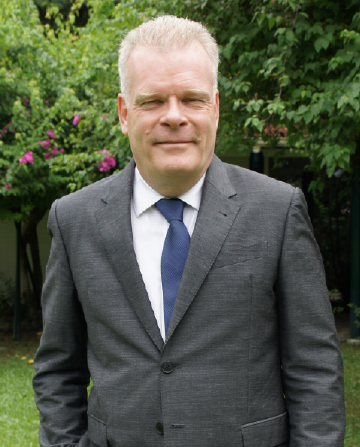
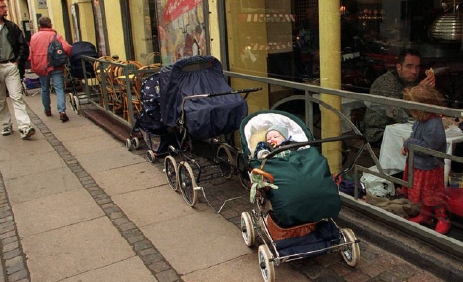
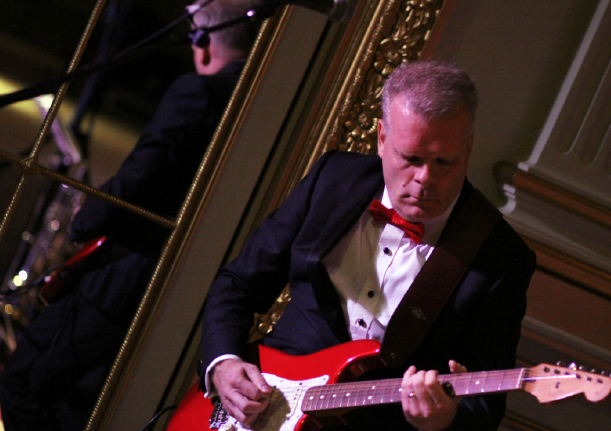
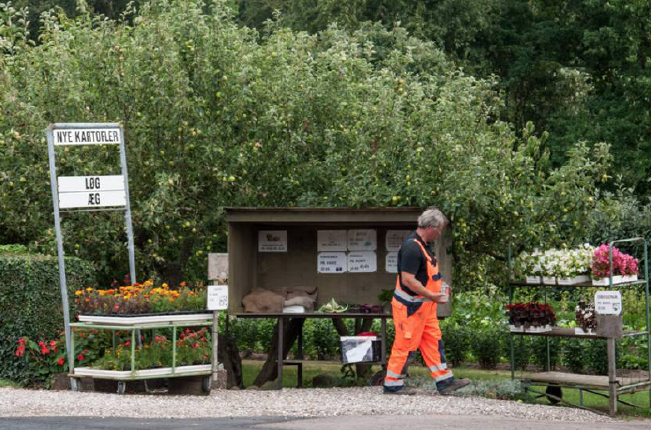
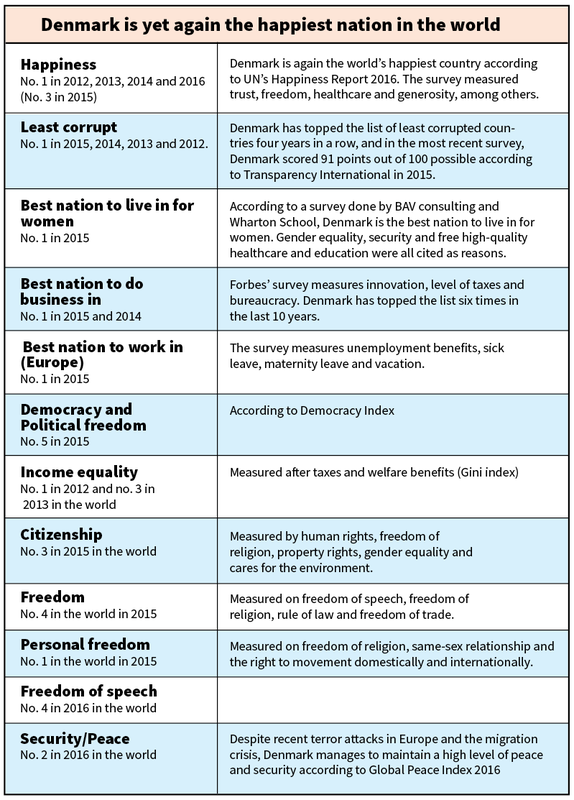

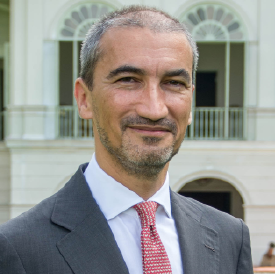
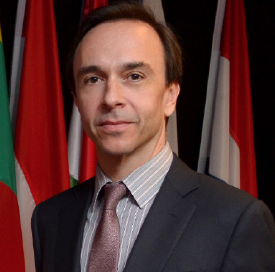
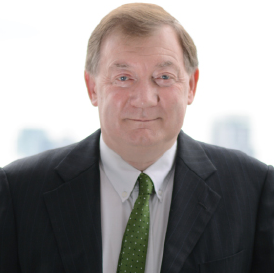
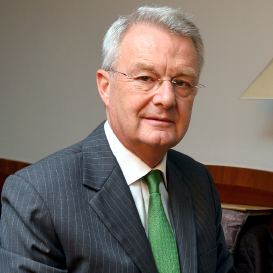
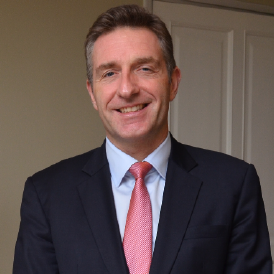
 RSS Feed
RSS Feed
















